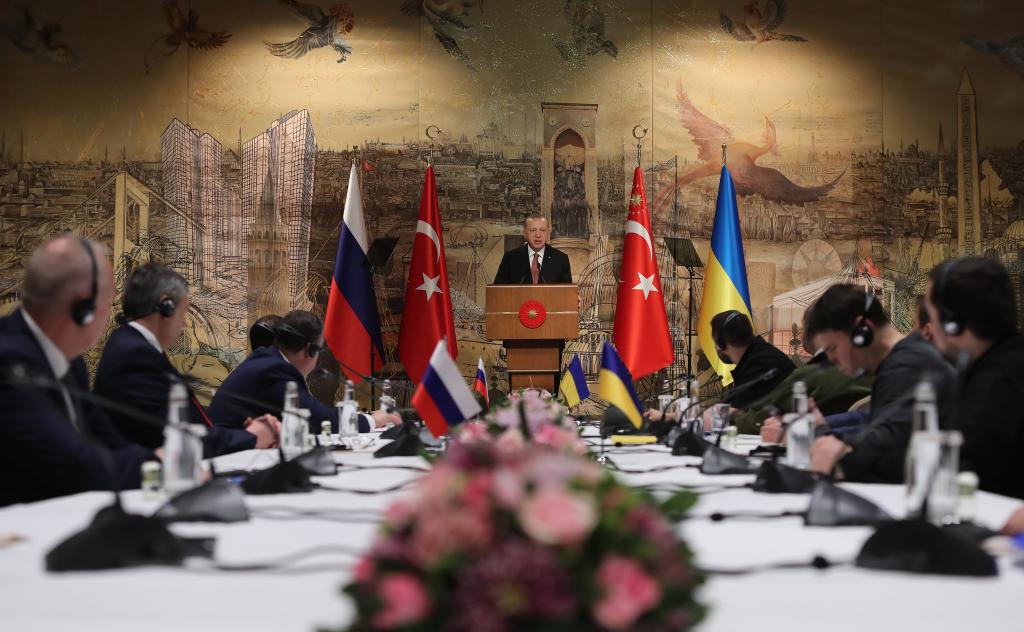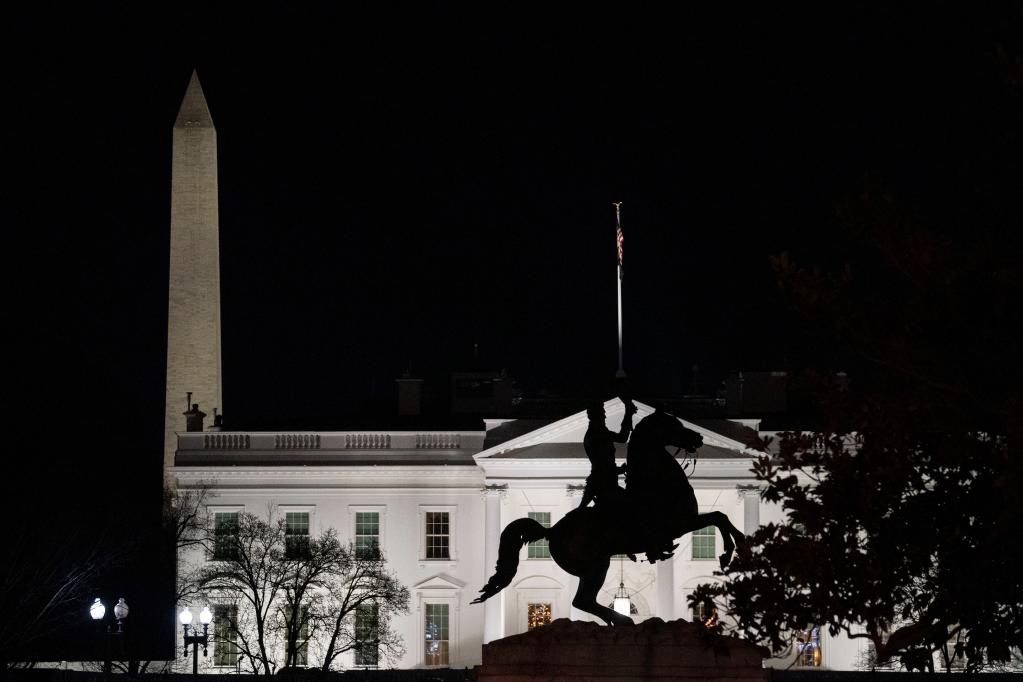How does the situation of Russia-Ukraine conflict evolve in the past 100 days?
Xinhua News Agency, Moscow, June 3rd(International observation) How has the situation of the conflict between Russia and Ukraine evolved in the past 100 days?
Xinhua News Agency reporter Liu Kai Li Dongxu Geng Pengyu
Russia has carried out special military operations in Ukraine for 100 days until June 3. At present, the focus of the war is Lisichansk and North Donetsk in Lugansk region. Judging from the war reports released by Russia and Ukraine, the competition between the two sides in North Donetsk has become fierce.
Russia has repeatedly stressed that special military operations will achieve all the "set goals", while Ukrainian President Zelensky shouted that he would "fight to the end". At the same time, the western countries led by the United States continue to exert pressure on Russia and increase their military assistance to Ukraine.
Analysts believe that Russia and Ukraine have different negotiating positions, and the United States and the West are constantly on fire. In the short term, peace is hopeless and the war may escalate further. How long the Russian-Ukrainian conflict will last and how it will end depends to a great extent on the future direction of the war situation.

The focus of the war "moved northward"
Since the launch of the special military operation, upor in Mali has been the key target of the Russian army, and the Russian and Ukrainian sides have fought fiercely around this place for more than two months. Russian Defense Ministry said on May 20th that Russian troops have completely controlled the city of upor, Mali. Since then, the focus of the battlefield has moved "northward" to the northeast of Donetsk and the west of Lugansk.
At present, the focus of Russia-Ukraine competition is Lisichansk and North Donetsk in Lugansk region, in which North Donetsk is regarded by Ukrainian troops as one of the most important strongholds in Donbass region. According to a report by the Ukrainian National News Agency on June 1, the Russian army has controlled 70% of the city of North Donetsk.
On the whole, the Russian army still takes the initiative in the battlefield. Zelensky recently admitted that the situation faced by the Ukrainian army is very difficult. He recently inspected the front line of Kharkov State and said on social media that Uzbekistan "will defend the country to the last person, and we will continue to fight and will certainly win".
Russian Defense Minister shoigu said that the special military operations will continue until all the established tasks are completed. The Russian army once said that one of the tasks in the new stage of special military operations is to "completely control Donbass and southern Ukraine."
Leonkov, a Russian military expert, believes that the situation of the Ukrainian army in the "Battle of Donbass" is not optimistic. It may be the most rational choice for the Ukrainian army to withdraw its troops from Donbass and leave its effective forces to reorganize its defense line. Tyshkevich, a researcher at the Institute of Future Relations in Ukraine, believes that Russian troops can’t control the whole territory of Donbass in a short time, and Ukraine has not given up the tactics of "sticky blocking", that is, fighting in areas with good defensive positions, attacking enemy supply lines and conducting mobile operations in other areas, so as to achieve the goal of consuming the enemy to the greatest extent.

The peace talks are difficult to resolve.
After the "Bucha incident" in early April, the Russian-Ukrainian negotiations were interrupted. Russia has repeatedly stressed that it has not closed the door to negotiations, while Zelensky has repeatedly reiterated that Russian troops should be withdrawn to the pre-conflict military contact line or border line, in which case the two sides can resume "normal" negotiations. Medvedev, vice chairman of the Russian Federal Security Council, said that the armistice conditions proposed by Zelensky were impossible in principle.
Recently, some European countries have stepped up their diplomatic mediation with Russia. Italian Prime Minister Mario Draghi, French President Macron and German Chancellor Angela Scholz have successively telephoned Russian President Vladimir Putin to discuss the situation in Ukraine. Turkey has also actively promoted the Russian-Ukrainian dialogue. However, judging from the results, the above diplomatic actions have had little effect on restarting the Russian-Ukrainian negotiations.
Medvedev pointed out that Russia has two red lines of negotiations: the sovereignty of Crimea cannot be discussed; Donetsk and Lugansk regions have chosen their own destiny, and it is meaningless to talk about "autonomy" within the framework of Ukraine.
Tyshkevich believes that the Russian-Ukrainian conflict has actually developed into a "long-term war", and the "active phase" may last for several months or even longer. The next key is to discuss the relevant conditions of the ceasefire agreement, but even if a ceasefire is reached, it will be very fragile.
Russian military expert Pelendzhiev believes that Kiev has no autonomy in negotiations, and Russia’s real negotiating partner is the Western countries, but at present, "the West is not ready for serious negotiations."

The west poured oil on the fire
Since the escalation of the conflict between Russia and Ukraine, the West has exerted extreme pressure on Russia and imposed several rounds of severe sanctions on Russia in economic, financial, energy and cultural fields. At the same time, the West has continued to provide military assistance to Ukraine, from the initial helmets and body armor to the current heavy weapons and sophisticated weapons, and the military assistance has been continuously strengthened.
On May 31, US President Biden approved the latest batch of weapons aid to Ukraine, including providing a long-range multi-barrel rocket launcher system at the request of Ukraine. In addition, the Ukrainian Ministry of National Defense said on May 28 that Ukraine is receiving a batch of Harpoon anti-ship missile systems from Denmark, Britain and the Netherlands for defense in the Black Sea region, and other partner countries will also supply such missiles to Ukraine one after another. At the same time, the EU recently passed the sixth round of sanctions against Russia, banning the import of 75% Russian oil.
In this regard, Putin stressed that it is very dangerous for the West to continue to deliver weapons to Uzbekistan, which may lead to further tension and deterioration of the humanitarian crisis. Russian Ambassador to the United States Antonov said on May 28th that the influx of western weapons into Ukraine "significantly triggered the risk of conflict expansion", and it would be "unacceptable" for Russia if the United States sent long-range artillery systems to Ukraine.
Buzarov, an expert on Ukrainian international issues, believes that Biden recently signed a $40 billion aid bill to Ukraine, and it is expected that the United States will continue to strengthen its military aid to Ukraine in the future. Russian independent political scientist Gevorgyan said that under such circumstances, it is impossible to expect great progress in Russia-US relations, and cooperation between the two sides on issues such as strategic dialogue and the Iranian nuclear issue is out of the question.
Russian Foreign Minister Lavrov said that in fact, the West has launched an "proxy war" against Russia, and the direction of Russia-West relations depends entirely on the West. When the west falls into "anti-Russian fanaticism", even if they propose to restart relations with Russia in some way, Russia has to seriously consider whether it is worth it.